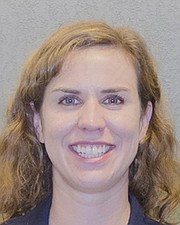I watch Dominic’s feet swing under his chair as he concentrates hard on answering the last question of a reading assessment. As I write down his answer, Dominic asks: “Ms. Nicole, did I do okay on the test?” I smile and nod yes. We both know he worked very hard and are both quite happy with his results. I am also very used to this question.
Kids, like the rest of us, want to know how they’re doing. As their teacher, it is also my job to know how they’re doing. What do they know? What do they still need to learn? I hold myself accountable for my students’ growth and it is with this data that I am best able to teach them and make sure of their progress.
I get important help in this process because No Child Left Behind currently requires my school to report my students’ data. That data is then disaggregated, so that the performance of subgroups (students of color, students in poverty, special education students, English Language Learners) is specifically reported. If the data shows that a school is failing to support the progress of their students, especially their most disadvantaged students, action must be taken. When my school failed to make adequate yearly progress, we began a partnership with experts at the University of Virginia. This partnership supported the leadership team at my school, helping them dig deep to understand and act on student data. These school leaders then helped teachers like me institute stronger teaching practices to support of all of our learners. All of these actions, based on NCLB’s accountability requirements, helped students like Dominic grow.
Every Child Achieves Act (ECAA), the current version of the NCLB/ESEA that is now under reauthorization discussion in Congress, gives states the flexibility to create accountability systems but does not require schools with failing data to take any remediation measures. While it is certainly possible for states to create strong systems of accountability and remediation, we know that some meaningful federal guardrails are necessary if we are to prevent states from turning a blind eye to the students who need assistance the most. History has shown that when we allow states to have total control, without any federal oversight, they run off the tracks. Prior to NCLB, 48 states chose not to include any subgroup data in their accountability systems (meaning that students in poverty, students of color, special education students, and English language learners were not counted in their performance metrics). Sensible federal accountability standards provide states and districts with the flexibility they deserve to best address the needs of their students, while still making sure that states put supports in place to help students, teachers, and schools that need extra help.
The truth is that some students have greater challenges than other. Dominic is a good example of this. He is a Hispanic, special education student, who is living in poverty. His test scores are present in the currently required subgroup data and the extra supports that my school put in place helped him. Dominic has ADHD and auditory processing disorder, which means he has difficulty with focus and attention as well as difficulty comprehending information presented orally. As part of the extra supports my school put in place, Dominic was in a co-teaching model classroom with both a general education teacher and a special education teacher. Having two teachers gave us flexibility to create small groups and to extend and remediate student learning better. With Dominic, we also used strategies such as visual prompts with directions and prewritten notes or visuals for him to refer to during lessons. As a result, when Dominic asks about his progress, he and I are both are both happy with the outcome.
ECAA should require states to account for and support Dominic and students like him. Accountability and remediation measures are the minimum that states should be doing to track and promote their students’ progress. States and districts will still have the necessary discretion to craft supports best suited for their students, but ECAA must make sure that this protection is in place for all students.
A long-time Alexandria City resident, Nicole Thorpe is a special education resource teacher at Ingenuity Prep Public Charter School in Washington, D.C. She is a Teach Plus Teaching Policy Fellow.
